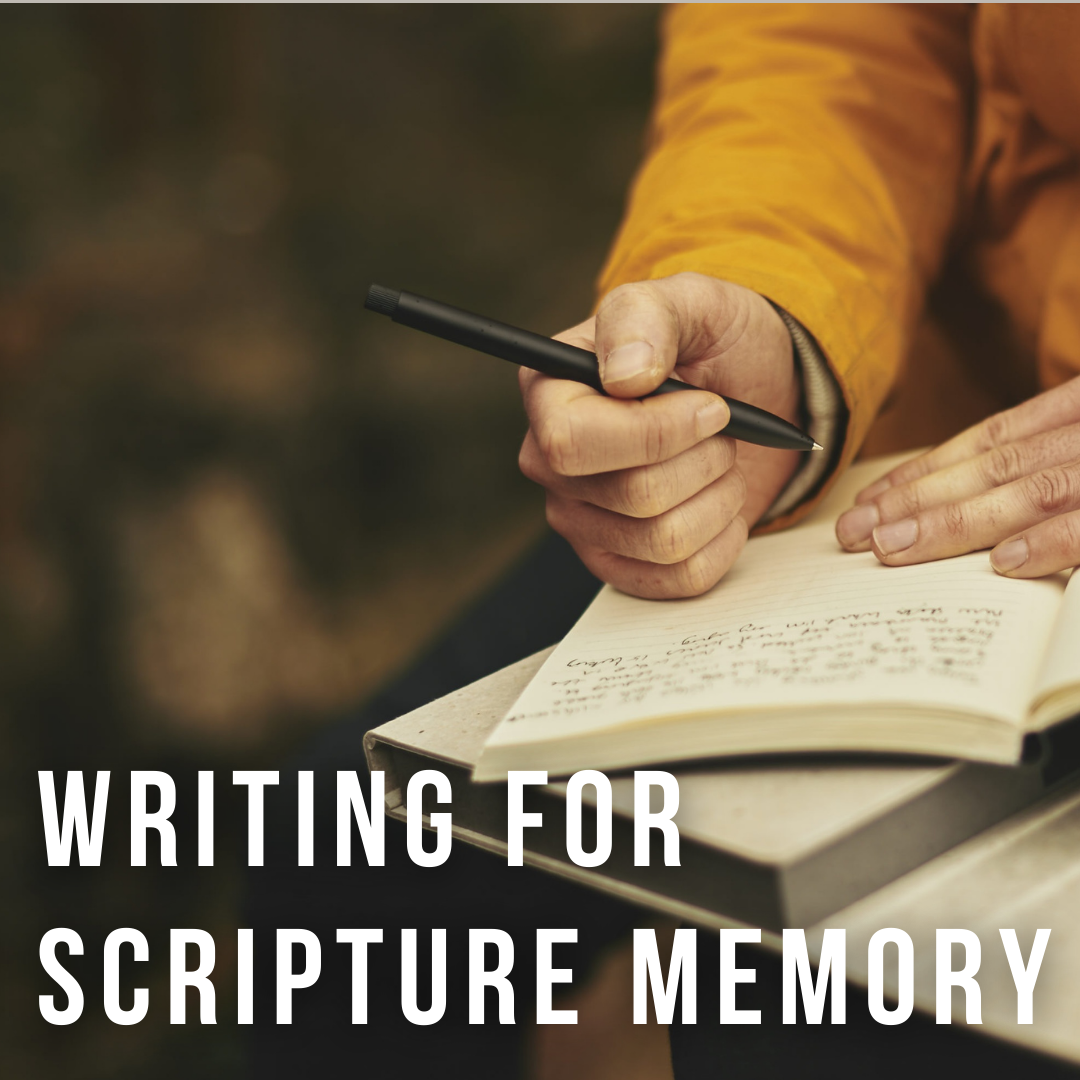
Writing For Scripture Memory
Computers are on the verge of replacing pen and paper. There can be no denying that in the last 20 years alone, technology has become vastly more proficient at recording and calculating data. Even though computers today are the first choice for sharing documents, recording sales, and team management, writing on paper has unseen cognitive benefits. It can improve long-term memory and overall processing in the brain, both vital elements of Bible study and Scripture memorization.
Deuteronomy 17:18-20 records this surprising how and why for memorizing Scripture. The how is listed in verse 18: “he shall write for himself in a book a copy of this law…And it shall be with him, and he shall read in it all the days of his life…”, and the why follows in the next two verses:
...that he may learn to fear the Lord his God by keeping all the words of this law and these statutes, and doing them, that his heart may not be lifted up above his brothers, and that he may not turn aside from the commandment, either to the right hand or to the left, so that he may continue long in his kingdom, he and his children, in Israel.
This law was God’s requirement for Kings over Israel, that they might be set apart from the nations around them as His people. Instead of seeking to “multiply horses”, “multiply wives”, or “greatly increase silver or gold for himself” (vv. 16-17), this King, and likewise Israel, would be unlike any other. But why was God so specific in commanding this King to write out a copy of the law? Couldn’t he just look at it when he needed to?
The Science of Writing
A study conducted in 2021 at the University of Tokyo concluded that the increased spatial processing the brain undertakes for writing is likely the cause of faster and more accurate recall. Students were asked to take notes from a shared calendar. One group took handwritten notes, while another group took electronic notes. When asked to write what they recalled, the students who wrote the schedule electronically remembered the information and finished the test in 14-16 minutes, while those who wrote the schedule by hand finished in only 11 minutes!
How Can You Start Writing Your Memory Verses?
It’s been proven that writing information down creates a unique experience within the brain: the feel of the writing utensil, the unique variations of each letter, the sound of the paper. Writing solidifies information within a contextual and tactile experience that cannot be replicated. It’s personal; no one can copy your experiences with your paper and writing tool. Why not worship God with it? Better yet, if all of creation was purposed with glorifying God and enjoying Him forever, are not all good skills intended for that same end?
- Make it simple by writing one phrase at a time. Choose phrases that complete a thought before moving on to the next.
- Practice looking at the whole phrase, then saying it aloud to yourself before writing it down from your short term memory. This will further solidify it in your mind. Try this for each verse!
- Write at least one verse every day. Once you’ve memorized it, write it from memory each time, even if you’re sure you missed something. Once finished, check yourself.
- Don’t erase/scribble out your mistake! Simply put a single line through. If you missed a word, write the word above or below the line and draw an arrow to where it should go.
- Keep record of these little mistakes; this creates another experience for your memory to hold on to. It’s very difficult to forget memories of mistakes; use these marks and tallies in a positive way!
Writing Means Slowing Down
Here’s a rule of physics that stuck with me in high school: chaos increases unless acted upon by an outside force. In other words, one cannot simply continue about their life hoping their problems will spontaneously vanish into thin air. Something must act upon the chaos to bring order. Being present with God is a choice. A person has to stop themselves to start worshipping God. Habit and skill can be added to better articulate worship: writing, singing, speaking, creating art, even committing acts of service.
“For God alone, O my soul, wait in silence, for my hope is from him.” - Psa. 62:5
“Be still before the Lord and wait patiently for him.” - Psa. 37:7
“Be still, and know that I am God.” - Psa. 46:10
The psalmists—inspired, masterful writers—knew they needed quiet, solitude, peace with God. To give proper reverence, we must be still, be silent, and focus on acknowledging the Creator for who He is, without distractions.
Scripture Memory Fellowship will not leave you alone in this journey. We have a handful of resources for journaling your memory verses, including the Sermon on the Mount, 1 John, and even Jonah! Feel free to take a look at those here. As always, contact us if you need help getting started on your Scripture memory journey.

Leave a Reply